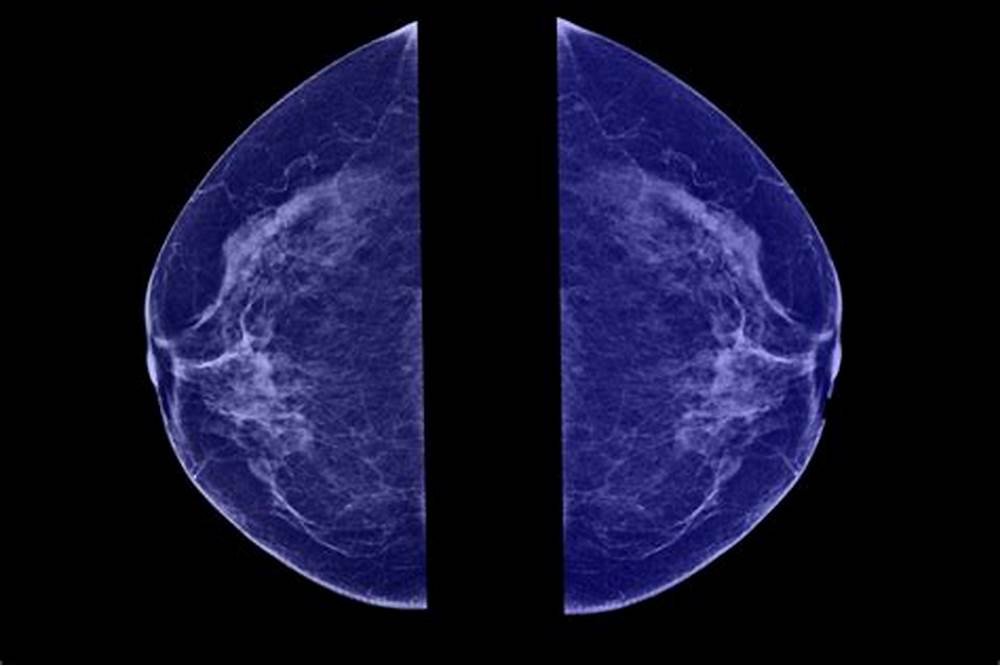Daiichi Sankyo & AstraZeneca’s Datopotamab Deruxtecan Recommended for EU Approval After Cutting Disease Progression Risk by 37%
03 February 2025 | Monday | News

Image Source : Public Domain
- Recommendation based on TROPION-Breast01 results showing Daiichi Sankyo and AstraZeneca’s datopotamab deruxtecan reduced risk of disease progression or death by 37% versus chemotherapy
- Datopotamab deruxtecan approved in the U.S. and Japan for same patient population
Datopotamab deruxtecan is a specifically engineered TROP2 directed DXd antibody drug conjugate (ADC) discovered by Daiichi Sankyo (TSE:45680) and being jointly developed and commercialized by Daiichi Sankyo and AstraZeneca (LSE/STO/Nasdaq: AZN).
The Committee for Medicinal Products for Human Use (CHMP) of the European Medicines Agency (EMA) based its positive opinion on results from the TROPION-Breast01 phase 3 trial published in the Journal of Clinical Oncology. The recommendation will now be reviewed by the European Commission, which has the authority to grant marketing authorizations for medicines in the EU.
In TROPION-Breast01, datopotamab deruxtecan significantly reduced the risk of disease progression or death by 37% compared to investigator’s choice of chemotherapy (hazard ratio [HR]=0.63; 95% confidence interval [CI]: 0.52-0.76; p<0.0001) in patients with HR positive, HER2 negative metastatic breast cancer as assessed by blinded independent central review (BICR). Median progression-free survival (PFS) was 6.9 months in patients treated with datopotamab deruxtecan versus 4.9 months with chemotherapy. A confirmed objective response rate (ORR) of 36% was observed in the datopotamab deruxtecan arm compared to an ORR of 23% observed in the chemotherapy arm. Two (0.5%) complete responses (CR) and 131 (36%) partial responses (PR) were observed in the datopotamab deruxtecan arm compared to zero CR and 84 PR (23%) in the chemotherapy arm. The median duration of response (DoR) was 6.7 months (95% CI: 5.6-9.8) in the datopotamab deruxtecan arm compared to 5.7 (95% CI: 4.9-6.8) in the chemotherapy arm.
Datopotamab deruxtecan demonstrated a favorable safety profile over chemotherapy with no new safety concerns identified. Grade 3 or higher treatment-related adverse events (TRAEs) occurred in 21% and 45% of patients in the datopotamab deruxtecan and chemotherapy arms, respectively. The most common grade 3 or higher TRAEs were neutropenia (1% vs. 31%), stomatitis (6% vs. 3%), fatigue (2% vs. 2%) and anemia (1% vs. 2%). In the datopotamab deruxtecan arm, the all-grade interstitial lung disease (ILD) rate was low (3%) and the majority of events were low grade. There was one grade 5 ILD event adjudicated as drug related by an independent committee. The primary cause of death in this case was attributed to disease progression by the treating investigator.
“Disease progression after endocrine and initial chemotherapy is common in patients with metastatic HR positive, HER2 negative breast cancer,” said Ken Takeshita, MD, Global Head, R&D, Daiichi Sankyo. “This positive recommendation by the CHMP for datopotamab deruxtecan, which follows recent approvals in the U.S. and Japan, underscores the potential of this TROP2 directed antibody drug conjugate to offer a new treatment option to patients in the EU with this type of breast cancer.”
“Only one in three patients live more than five years after a metastatic HR positive, HER2 negative breast cancer diagnosis, underscoring the urgent need for additional effective therapies,” said Susan Galbraith, MBBChir, PhD, Executive Vice President, Oncology Hematology R&D, AstraZeneca. “Today’s recommendation for datopotamab deruxtecan brings us closer to offering these patients in the EU a new and needed alternative to conventional chemotherapy.”
Datopotamab deruxtecan is approved in Japan and the U.S. for the treatment of patients with unresectable or metastatic HR positive, HER2 negative breast cancer who have received prior endocrine-based therapy and chemotherapy for unresectable or metastatic disease. Additional regulatory submissions for datopotamab deruxtecan in breast cancer are under review in China and other regions.
Most Read
- How Does GLP-1 Work?
- Innovations In Magnetic Resonance Imaging Introduced By United Imaging
- Management of Relapsed/Refractory Multiple Myeloma
- 2025 Drug Approvals, Decoded: What Every Biopharma Leader Needs to Know
- BioPharma Manufacturing Resilience: Lessons From Capacity Expansion and Supply Chain Resets from 2025
- APAC Biopharma Review 2025: Innovation, Investment, and Influence on the Global Stage
- Top 25 Biotech Innovations Redefining Health And Planet In 2025
- The New AI Gold Rush: Western Pharma’s Billion-Dollar Bet on Chinese Biotech
- Single-Use Systems Are Rewiring Biopharma Manufacturing
- The State of Biotech and Life Science Jobs in Asia Pacific – 2025
- Asia-Pacific Leads the Charge: Latest Global BioSupplier Technologies of 2025
- Invisible Threats, Visible Risks: How the Nitrosamine Crisis Reshaped Asia’s Pharmaceutical Quality Landscape
Bio Jobs
- Sanofi Turns The Page As Belén Garijo Steps In And Paul Hudson Steps Out
- Global Survey Reveals Nearly 40% of Employees Facing Fertility Challenges Consider Leaving Their Jobs
- BioMed X and AbbVie Begin Global Search for Bold Neuroscience Talent To Decode the Biology of Anhedonia
- Thermo Fisher Expands Bengaluru R&D Centre to Advance Antibody Innovation and Strengthen India’s Life Sciences Ecosystem
- Accord Plasma (Intas Group) Acquires Prothya Biosolutions to Expand Global Plasma Capabilities
- ACG Announces $200 Million Investment to Establish First U.S. Capsule Manufacturing Facility in Atlanta
- AstraZeneca Invests $4.5 Billion to Build Advanced Manufacturing Facility in Virginia, Expanding U.S. Medicine Production
News











